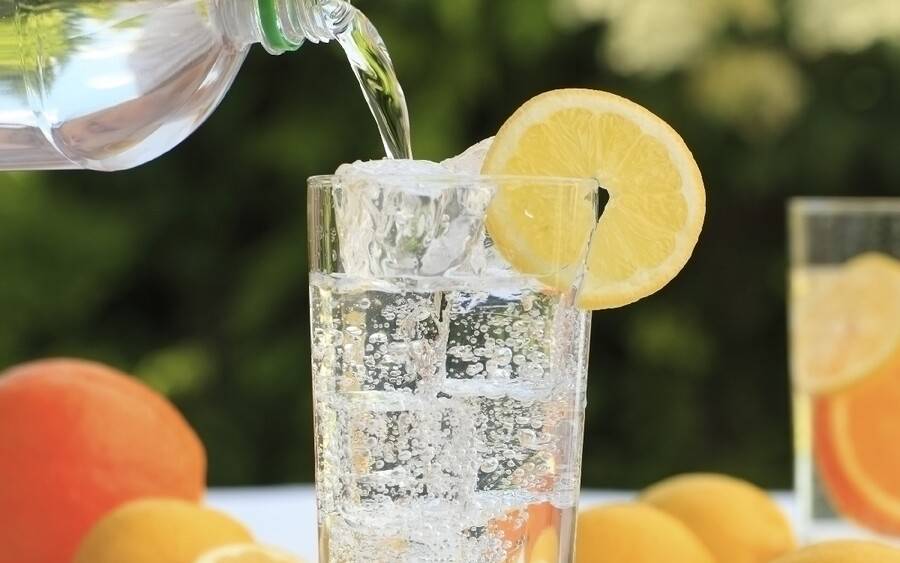Are Carbonated Beverages Harming Your Health?
OK to drink but watch out for sugary or acidic options

OK to drink but watch out for sugary or acidic options
Are you looking for a healthier choice than sugary sodas or energy drinks? Many people choose carbonated drinks, like sparkling water, for a refreshing, bubbly option.
But are these drinks really “guilt-free” or can they be harmful? The answer depends on the specific drink and how often you have it.
Research shows that some fizzy drinks, especially those with sweeteners, can lead to weight gain and dental problems. However, carbonation itself is not harmful.
“While sugary sodas and other carbonated soft drinks have been linked with negative health effects, carbonation is not harmful on its own,” says Saima Lodhi, MD, an internal medicine physician at Scripps Coastal Medical Center Hillcrest. “Drinking carbonated water hydrates the body as effectively as plain water and can be a nice break from tap water. The health effects depend on the added ingredients and how often you consume them.”
So, is carbonated water bad for you? The answer is no, as long as it doesn’t contain added sugars or artificial ingredients. However, those with sensitive stomachs or specific health conditions may want to monitor their intake.
Remember, not all carbonated drinks are equal, so it’s important to read the labels.
“Look for ingredients that may not align with your health goals,” Dr. Lodhi says. “For example, watch for high fructose corn syrup, artificial sweeteners, added sugars and phosphoric acid. These ingredients can contribute to weight gain, digestive issues and dental erosion.”
What is carbonated water?
Carbonated water is water infused with carbon dioxide. This process creates familiar bubbles. It can occur naturally in mineral springs or be made artificially.
The carbonation creates carbonic acid, which is a weak acid. It does not make the body more acidic.
What are popular carbonated beverages?
Carbonated drinks come in a variety of forms, from plain sparkling water to sugary sodas. Here is a list of popular carbonated drinks and their health implications.
Soda
Carbonated sugary drinks, like soda and root beer, are very popular. However, they often contain a lot of sugar. This can contribute to weight gain, type 2 diabetes and dental problems. The acids in soda can also harm tooth enamel and may aggravate gastroesophageal reflux disease (GERD).
Plain carbonated water is a zero-calorie, tooth-friendly option.
Seltzer
Seltzer water is plain carbonated water with no added flavors or sweeteners. Home carbonation systems like SodaStream typically produce seltzer. It is a simple and hydrating choice for those who want bubbles without additives.
Club soda
Club soda is seltzer that has extra minerals, like potassium bicarbonate or sodium, that have been added for extra flavor. It tastes a bit different from seltzer because of these added minerals.
Tonic water
Tonic water is carbonated, but unlike other carbonated options, it contains the flavoring agent quinine and additional sugars. You may be advised to avoid or use caution with quinine if you have a heart condition, low blood sugar, kidney or liver disease, are pregnant or are allergic to quinine.
Mineral water
Mineral water is naturally occurring flat or sparkling water, rich in minerals like calcium and magnesium.
Flavored sparkling water
Flavored sparkling water is carbonated water with natural or artificial flavors, sometimes with added sugar or sweeteners.
Research shows that acidic flavoring can raise the risk of enamel erosion.
The American Dental Association offers tips to lower the risk of tooth erosion from acidic drinks:
- Use a straw to minimize contact with teeth.
- Avoid swishing the drink in your mouth.
- Rinse your mouth with water after consuming.
- Wait at least an hour before brushing your teeth to allow enamel to re-harden.
Functional beverages
These are fizzy drinks that have added vitamins, electrolytes or probiotics. They can provide extra health benefits.
Probiotic and prebiotic sodas, for example, are gut-friendly sodas that are beneficial to digestive health.
Make sure to check the ingredient list closely and watch for added sugars or artificial ingredients.
Carbonated drinks and sensitive stomachs
Carbonated drinks can have mixed effects on digestion. Drinking carbonated water may help you feel full, which may help with weight management. However, drinking too much can cause bloating.
If you have a sensitive stomach, switch between carbonated and flat water. Stay away from highly carbonated drinks and those with artificial additives.
Carbonated drinks and bone health
Concerns about bone health often stem from cola drinks, which contain phosphoric acid. Research shows that drinking cola often may lower bone density, especially in women.
However, drinks like seltzer and club soda do not have these risks. The real problem is when people swap calcium-rich drinks, like milk, for soda.